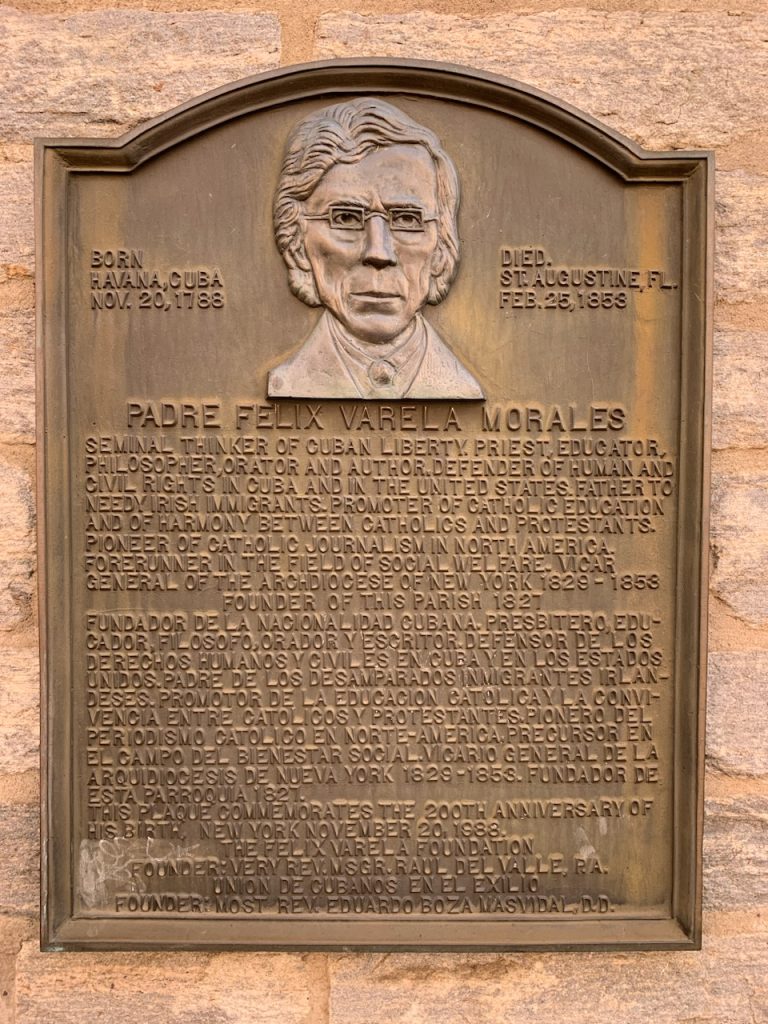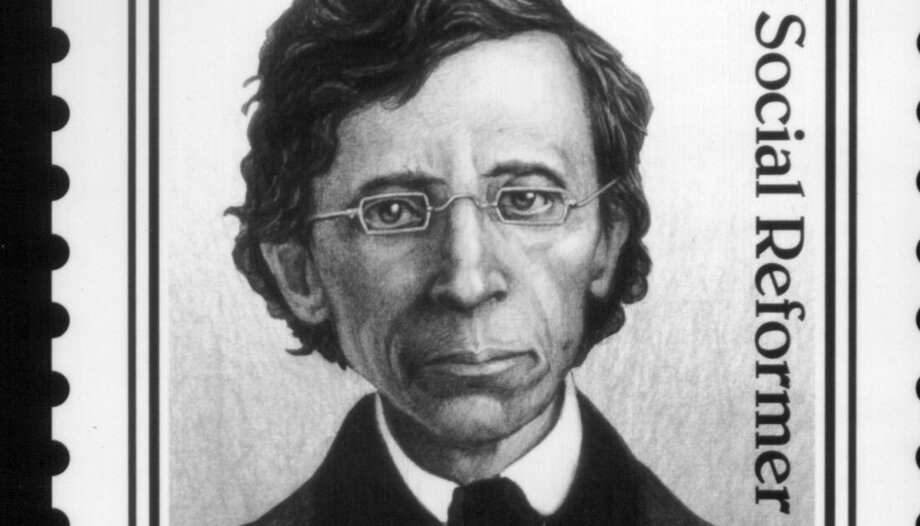Writing as a New Yorker, immigrants have played a pivotal role in the life of New York and the United States in general since the founding of the "land of the free." Although the nationalities and languages of immigrants change over time, the challenges of navigating life in a new country and a new culture remain remarkably similar. The Catholic Church has always strived to help newcomers meet these challenges, both materially and spiritually.
Father Felix Varela (1788-1853) responded during his priesthood to the call to serve the Irish, Italian and German immigrants who had recently arrived in New York. In the region of the city then called "the Five Points," he ministered especially to thousands of Irish immigrants escaping poverty, hunger and death in their homeland.
Born in Havana (Cuba), he was ordained a priest at the age of twenty-three. He was highly appreciated for his brilliant philosophical mind, his cultural interests and his role in the political sphere of Cuba and Spain. In 1823, Father Varela represented Cuba in the Spanish Cortes. He signed a document critical of Spanish King Ferdinand VII. The monarch declared the sixty-six signers of the document enemies of the state. As a result, Father Varela fled Spain on a journey that would take him to the United States. He and his two companions arrived in New York harbor aboard the Draper on December 15, 1823.
Arrival in the United States
At that time, there were only two parishes in New York: St. Peter's, on Barclay Street, and St. Patrick's Cathedral (now St. Patrick's Cathedral). Old St. Patrick's Cathedral). Father John Power, vicar general of the diocese, asked Father Varela to help him organize a new immigrant community. Two years later, Father Varela raised $19,000 to purchase the Christ Church property. By 1833, that building was becoming unsafe for use. This prompted Father Varela to purchase land on James Street to build a new church dedicated to St. James. Some parishioners complained that James Street was too far from their old Christ Church. In response, Father Varela purchased a former Presbyterian church on Chambers Street. The church was renamed the Church of the Transfiguration.
Finally, Bishop Dubois appointed Father Varela as Vicar General, along with Father John Power, who together would carry out this important function. As noted in Felix Varela: Torch Bearer from CubaJoseph and Helen McCadden, "the two young priests had much in common. Both were completely devoted to their vocation. Both were scholars, well trained in theology. Each had fled his beloved homeland, a victim of political tyranny: Power was a pioneer student at Maynooth, the first Catholic seminary in modern Ireland, tolerated by the British to keep the local papist clergy away from the revolutionary contamination of the continental universities."
Surrender to the people
Father Varela's homework, academic achievements and writings meant little to him in comparison to his pastoral duties. He was completely devoted to his priestly work. He worked under the motto: salus animarum suprema lexThe salvation of souls is the supreme law'.
Father Varela was a true pastor to all those he served, especially to the thousands of Irish immigrants who found in his church a place of refuge. He defended them from the "nativists" who opposed and mistreated the immigrants. Speaking of his support for Irish refugees, he once said, "I work hard to help Irish families build schools for their children, and I care for those sick with cholera, and I defend Irish American boys and girls from the insults of mobs who hate them just because their parents are immigrants."
Changes in education
Father Varela fought to improve schooling for the children of immigrants. To supplement the Sunday school instructions, he collaborated with the magazine "Children's Catholic". In the summer of 1838, this publication "called attention to the libels against Catholics, and against Irish Catholics in particular, in the texts and library books supplied by the New York Public School Society." This revelation led Catholic school administrators, in the early 1840s, to demand public aid for their own institutions, and led to the famous School Crisis of 1840-42 and, ultimately, to the founding of the New York City system of secular public schools."
Several biographies tell stories of Father Varela's selfless generosity. He gave to the needy whatever valuables he had: his watch, silver spoons, his tableware, sheets and blankets, even his own clothes!
The legacy of Félix Varela
In 2023, the area most affected by Father Varela's care is no longer occupied by the Irish, but by thousands of immigrants from China and Asia in lower Manhattan. In fact, the parish he founded offers Mass in Mandarin and Cantonese.
With the recent influx of immigrants Varela's example is one that we need to emulate now more than ever. Our newly arrived brothers and sisters need an advocate, just as Irish, German and Italian immigrants needed one in the past.
Felix Varela believed, as Juan Navia writes in "An Apostle for Immigrants", that "as human beings created in the image of God, we have the capacity to reason and make vital decisions in accordance with our human dignity and that lead us to happiness in this world and salvation in the next". They need well-educated and well-versed people who can refute contemporary nativist arguments.
The vulnerable people of our society need a modern Father Varela to help them improve their lives, as his anti-alcohol movement did. May he inspire the hearts of many to be generous with their time, talent and treasure, to heed the Gospel message and to see Christ in their neighbor.









